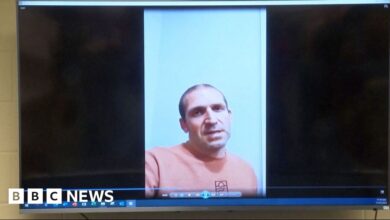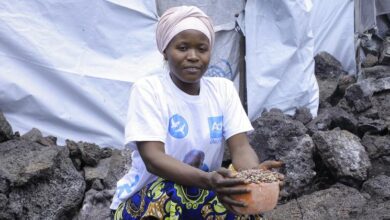‘The worst moment the country has experienced’
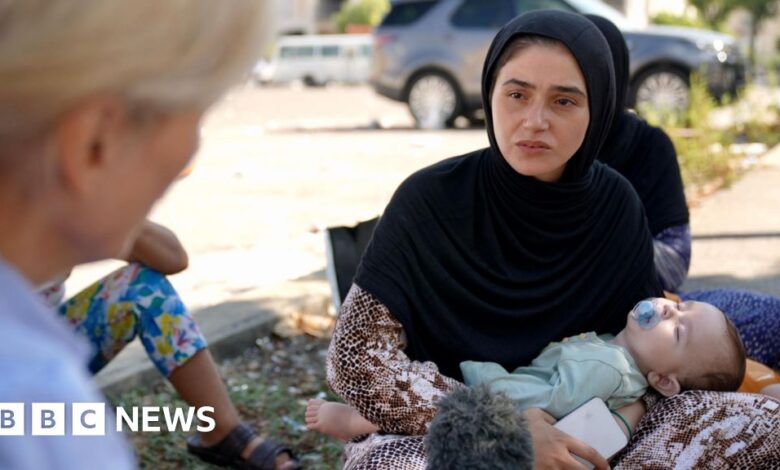
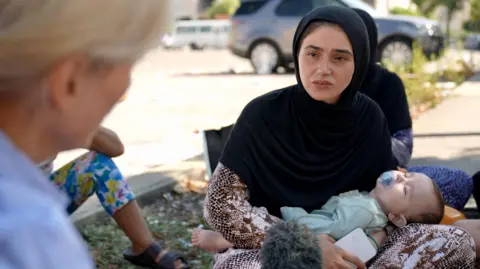 Goktay Koraltan/BBC
Goktay Koraltan/BBCLebanon is a country that understands war very well. And it’s not eager for more.
It still bears the scars of 15 years of civil war from 1975 to 1990 and the final war between Hezbollah and Israel in 2006.
But for some, including Beirut Governor Marwan Abboud, Israel’s recent escalation has taken a turn for the worse.
Over the past 10 days, the country has suffered mass casualties from exploding pagers and walkie-talkies, a wave of assassinations of Hezbollah military commanders, devastating airstrikes – and the use of Bomb destroys bunker in Beirut, killing Hezbollah leader Hassan Nasrallah. on Friday.
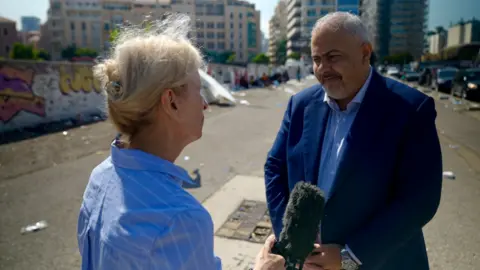 Goktay Koraltan/BBC
Goktay Koraltan/BBC“It was the worst moment the country has gone through,” said Abboud, who has no connection to Hezbollah.
“I feel sad. I’m shocked by the large number of civilian casualties. I’m also shocked by the silence of the international community – as if what’s happening here doesn’t matter at all.”
We spoke on the edge of Martyrs’ Square in Beirut, where families slept outdoors last night after fleeing Israeli attacks in the southern suburb of Dahieh – the heartland of Hezbollah.
They remain in the square to this day – not knowing where to turn for safety, like many people in Lebanon.
When asked what he thought Israel’s plan was, the governor replied: “I don’t know but Israel wants to kill, kill and kill. May God protect this country.”
His farewell was somber. “It was the saddest day of my life,” he said, his voice heavy with emotion.
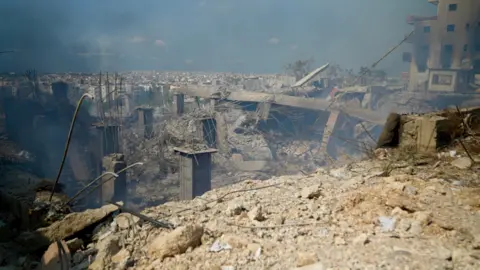 Goktay Koraltan/BBC
Goktay Koraltan/BBCA few steps away, we met a large family sitting on bare concrete, under the harsh morning sun.
Madina Mustafa Ali is rocking her seven-month-old baby Amir on her lap and reliving the trauma of Friday night.
“There was an explosion and we were very scared, especially the children. So we ran away and came here. This is where we slept,” she said.
She told me that the whole family would stay in the square temporarily because they had nowhere else to go.
Others are fleeing, some heading north to Lebanon. The south of the country is not an option – it is being hit hard.
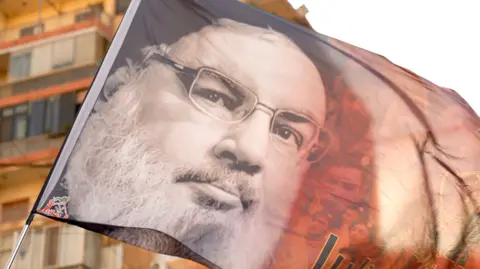 Goktay Koraltan/BBC
Goktay Koraltan/BBCDriving through the city, we saw many families on the move, some packed into cars with thin mattresses strapped to the roof, others loaded onto motorbikes.
Here and there we saw people walking carrying a few belongings.
This is Beirut’s new scene: packed shops, fewer people and more fear – especially since Nasrallah’s murder was confirmed.
All day long, black smoke billowed from Dahieh. Hezbollah’s stronghold looks much weakened today – the two busiest streets are largely deserted and many apartment blocks look deserted.
We spotted Hezbollah members guarding an air strike site, one brandishing a Kalashnikov. A sign of tension or desperation – as armed groups do not normally display weapons on the streets.
Today Hezbollah did not monitor our every move – perhaps they were more focused on the threat from above.
We’re also keeping an eye on the skies, where drones are.
At the site of an Israeli attack, we saw smoke still rising from the ruins of what appeared to be a factory. We were told it was made from kitchen roll and there was a lot of shredded stuff on the ground.
Lebanon has become a war zone but there are growing risks for the entire Middle East. And lots of questions.
Will Hezbollah respond strongly to Israel? Is it possible?
Will Iran’s supporters intervene? Up until now they have not been in a hurry.
And will Tehran’s other regional proxies – in Iraq, Syria and Yemen – become more involved?




